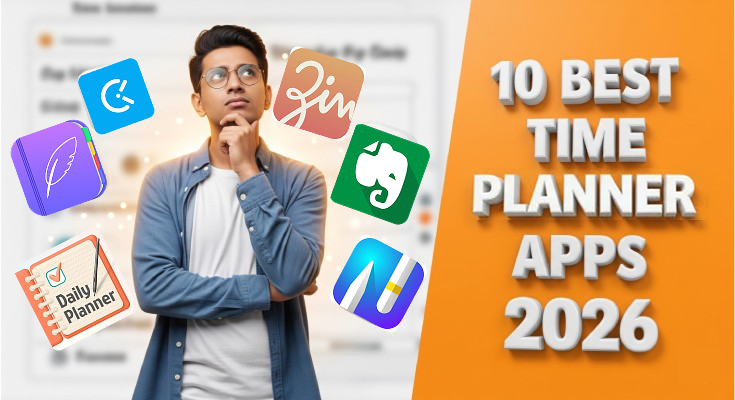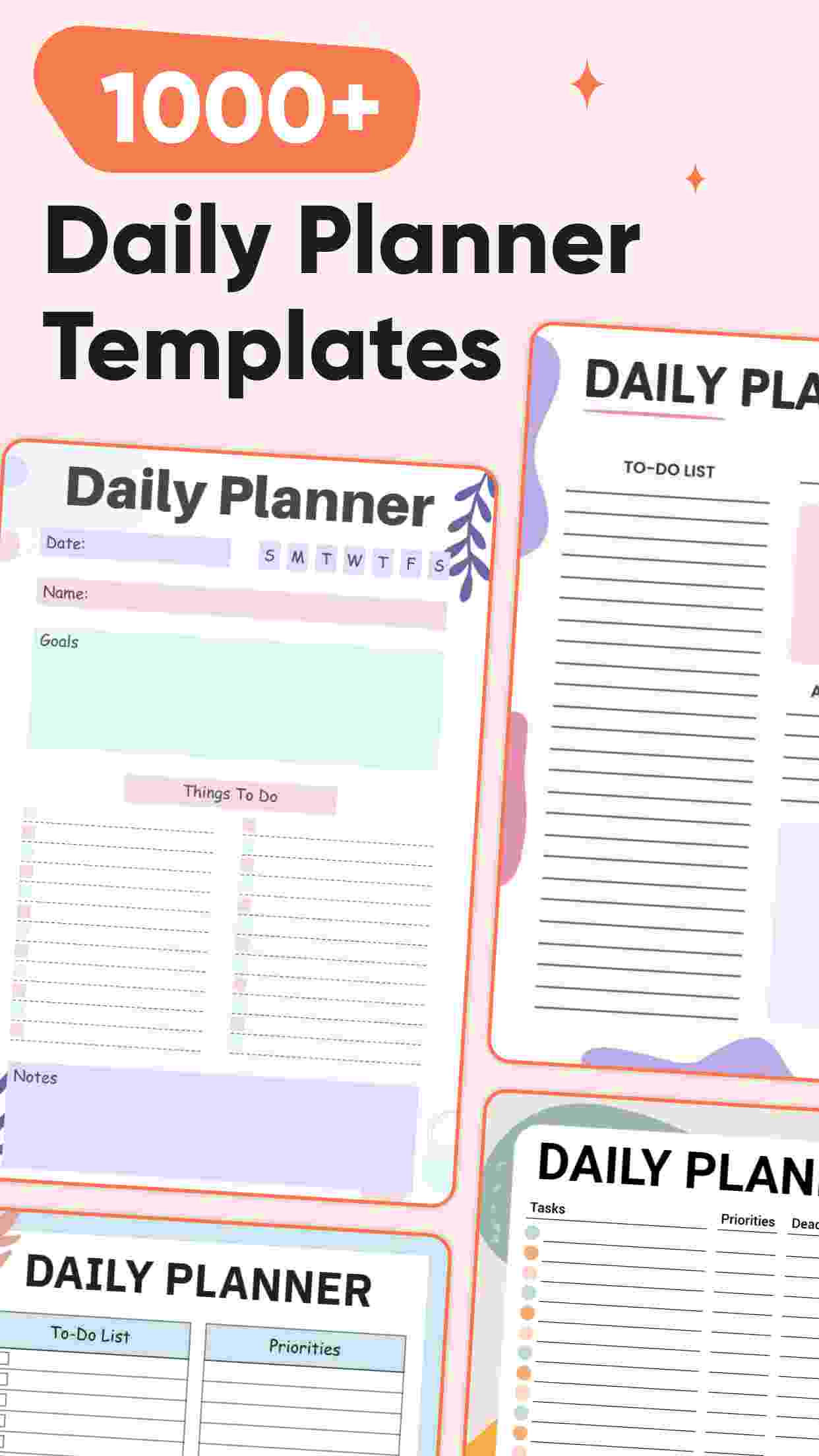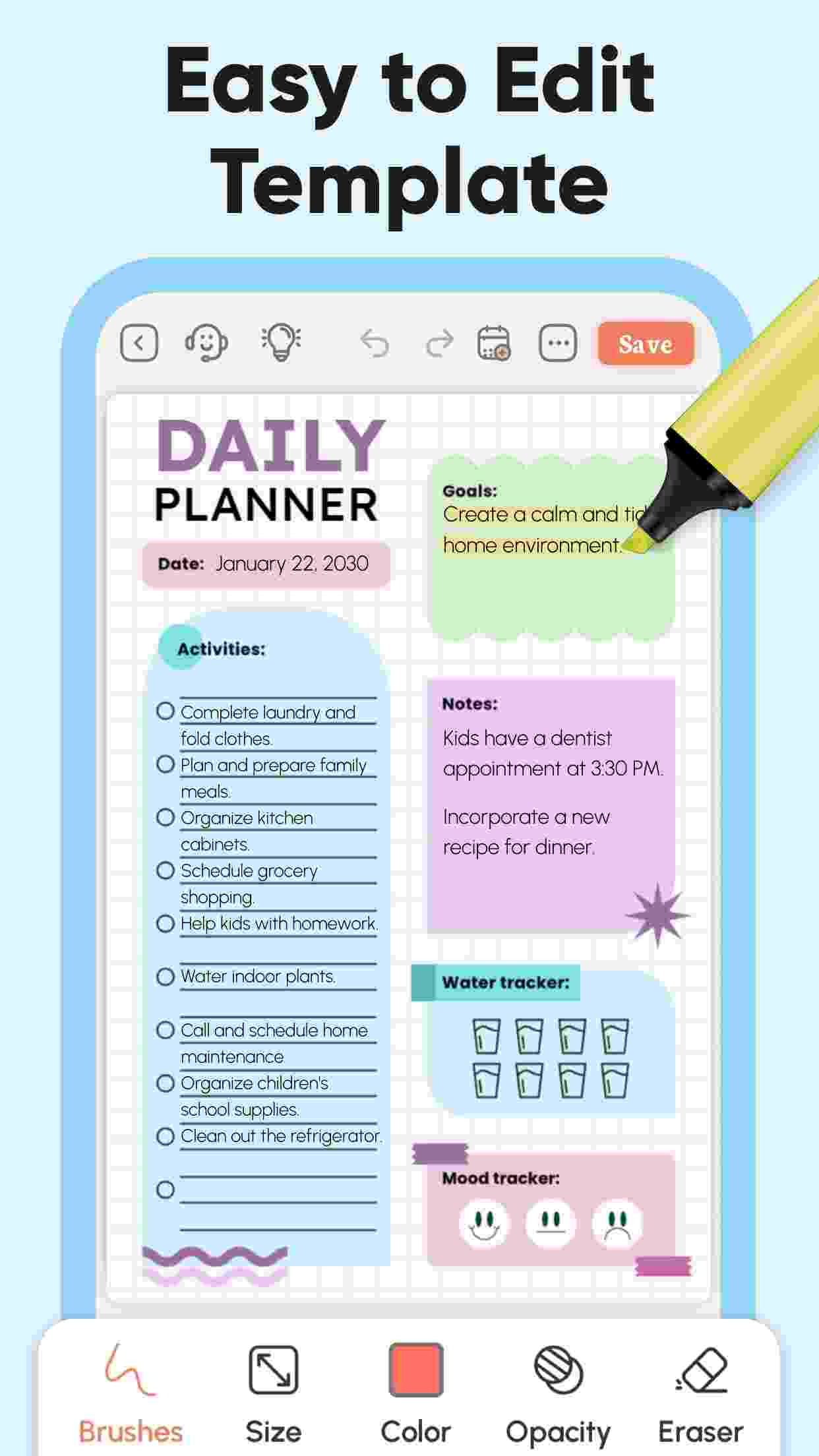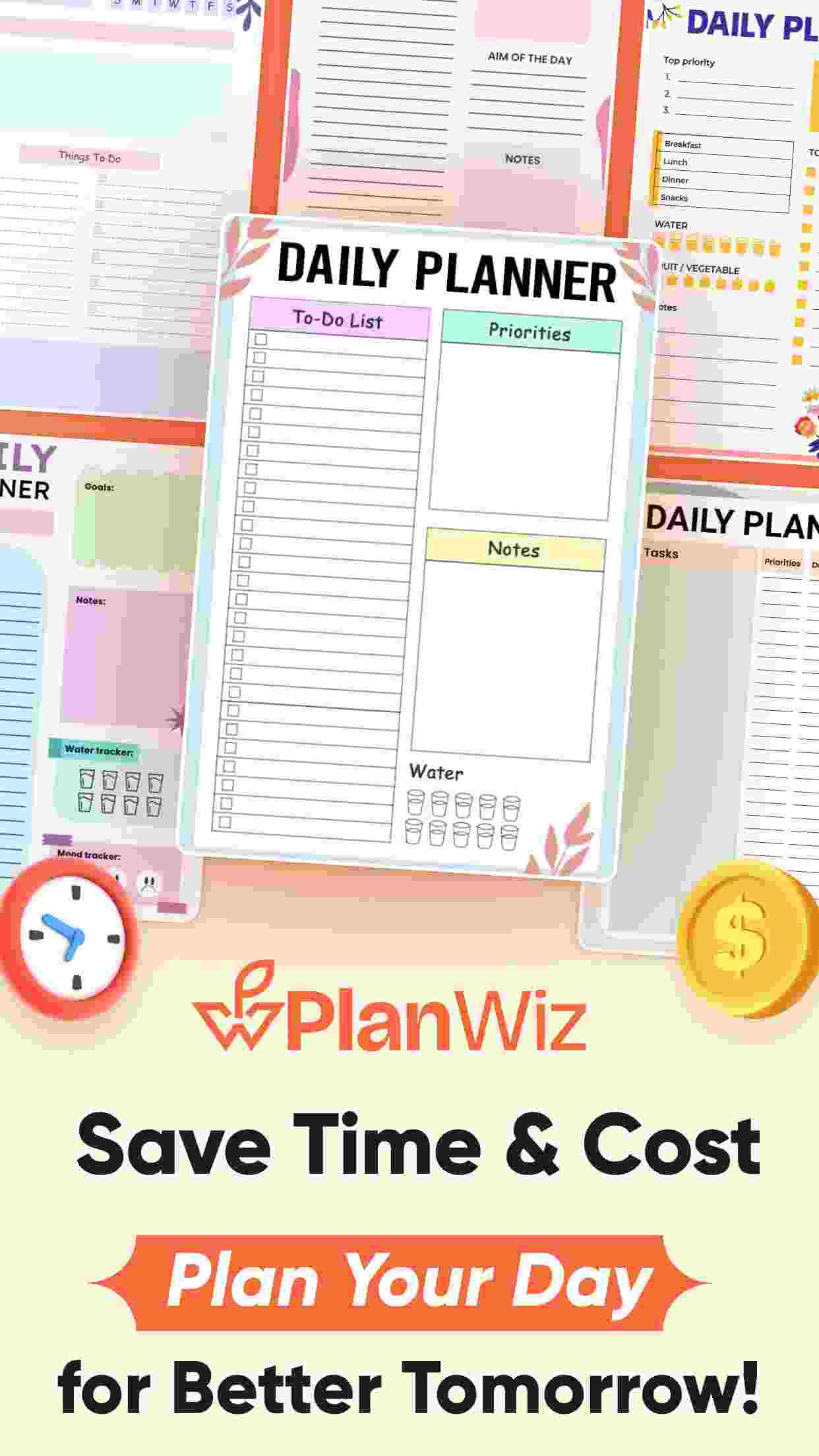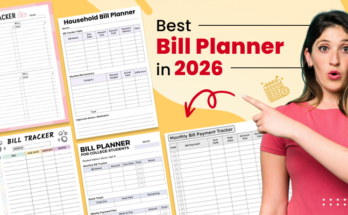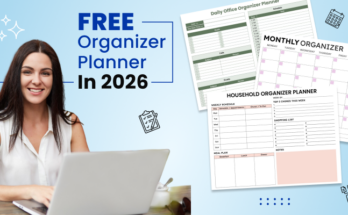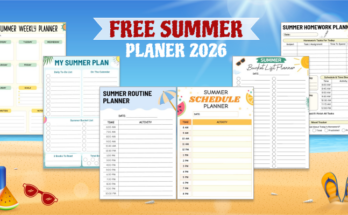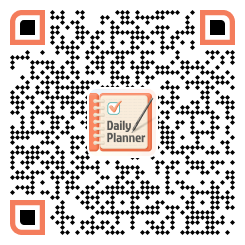Looking to take control of your day and boost productivity? Whether you’re a student managing study schedules, a busy professional balancing meetings, or someone simply aiming for a well-organized routine, using the right schedule maker and time management can transform how you plan and execute your tasks.
In this guide, we’ve curated the best time planner apps of 2026, covering both free and paid options, to help you find the perfect tool for time blocking, daily routines, and goal tracking.
List of 10 Best Time Planner Apps in 2026
Here’s our handpicked list of the best time block planner apps this year, each designed to help you organize your day, manage tasks, and boost productivity:
- PlanWiz – Best for Customizable Daily Routine Templates
- Evernote – Best for Note-Taking + Task Planning
- Notability – Perfect for Students and Digital Note Lovers
- Goodnotes – Great for Creative Planners
- Noteful – Modern Note + Planner Combo
- Clockify – Best for Time Tracking + Scheduling
- Pencil Planner & Calendar Pro – Best for iPad Users
- Planner Pro – Simple Daily, Weekly & Monthly Planner
- Trello – Visual Board-Based Task Planning
- Zinnia – Creative Digital Planner & Journaling App
1. PlanWiz – Best for Customizable Daily Routine Templates
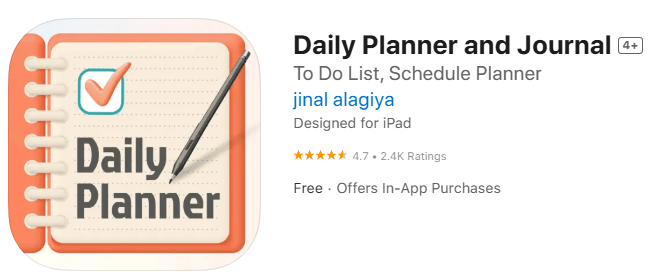
PlanWiz stands out as the ultimate solution for users who want maximum customization without the complexity. This innovative time management planner app focuses exclusively on providing high-quality, editable pre-planner templates that adapt to your unique lifestyle and planning needs.
What makes PlanWiz unique: PlanWiz revolutionizes digital planning by offering a comprehensive library of professionally designed templates.
Unlike traditional apps that force you into rigid structures, That gives you the freedom to customize, edit, and personalize every aspect of your planning experience.
Key Features:
- Extensive template library covering daily, weekly, monthly, and yearly planning
- Full customization options (colors, fonts, layouts, sections)
- Easy edit and modify functionality for all templates
- Seamless download options in multiple formats (PDF, PNG, JPEG)
- Share templates with team members, family, or study groups
- Regular template updates and new designs
- Mobile and desktop compatibility
- No subscription required for basic templates
Pros:
- Completely customizable to fit any planning style
- Professional, aesthetically pleasing designs
- One-time access to templates without recurring fees
- Perfect for visual learners and creative planners
- Templates suitable for students, professionals, and entrepreneurs
- Share and collaborate features enhance team productivity
Cons:
- Focuses on templates rather than automated scheduling
- Requires manual input for most planning activities
- Limited integration with external calendar apps
Best For:
- Creative individuals who prefer visual planning
- Students who need flexible study schedule maker templates
- Professionals who want branded, customizable planners
- Teams looking to share consistent planning formats
- Anyone who values aesthetic appeal in their planning tools
PlanWiz is particularly powerful for users who understand that effective planning isn’t one-size-fits-all. Whether you need a 24-hour time planner for shift workers, a meeting agenda template for busy executives.
This time planner app offers a variety of customizable templates to suit every need. From bullet journals to weekly and monthly planners, it helps you stay organized and track goals with ease. The creative daily planner allows handwritten notes and agendas, making it feel personal and flexible.
With 1,000+ stickers, cards, lettering, and icons, you can decorate and personalize your schedules creatively. Whether for work, study, or daily routines, this app combines productivity with fun customization.
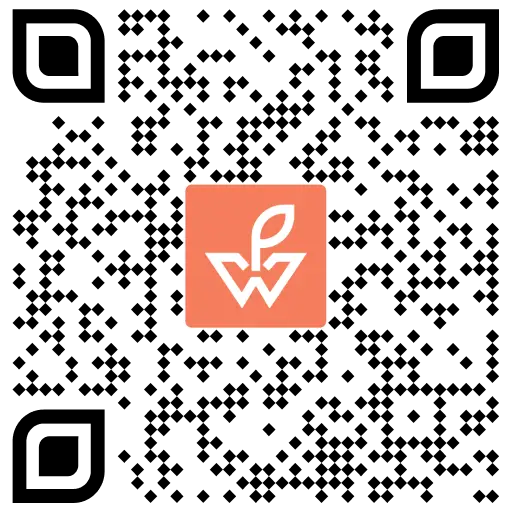
2. Evernote – Best for Note-Taking + Task Planning
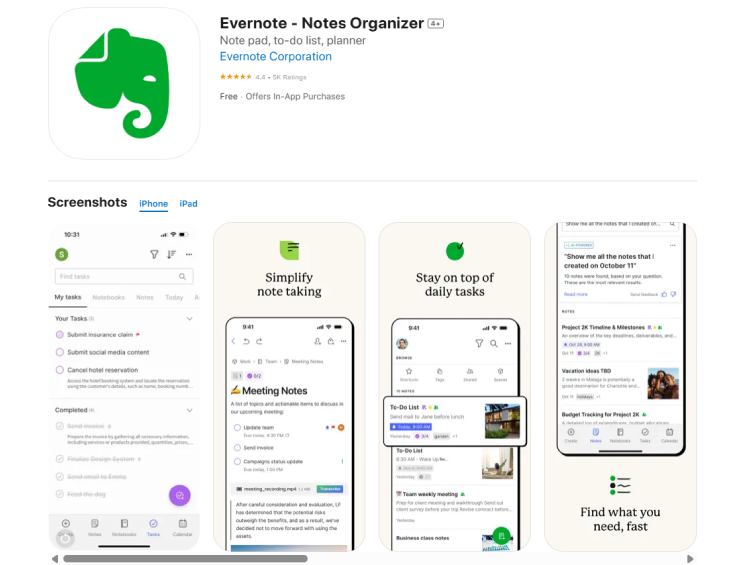
Evernote has evolved from a simple note-taking app into a comprehensive productivity powerhouse that seamlessly blends note organization with task planning capabilities.
Key Features:
- Notes + tasks with reminders
- Calendar integration
- Cross-device sync
- Web clipper and document storage
Pros:
- Powerful search
- Offline access
- Robust free tier
Cons:
- Premium required for advanced features
- Can feel cluttered with many notes
Best For: Students, professionals, researchers
Price: Free with subscription plans
Platform: iOS, Android, Web
Rating: 4.5/5
3. Notability – Perfect for Students and Digital Note Lovers
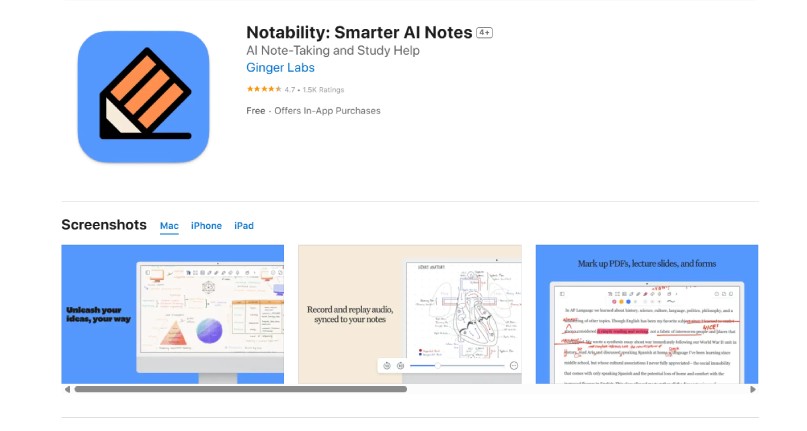
Notability excels in combining handwritten notes with digital planning, making it the go-to choice for students and professionals who prefer the flexibility of digital ink combined with structured planning.
Key Features:
- Apple Pencil support for natural handwriting
- Audio recording synchronized with notes
- Sync across Apple devices
Pros:
- Smooth handwriting
- Audio support
- Visually appealing interface
Cons:
- iOS only
- Limited task management
Best For: Students, creatives
Price: Free with a premium subscription
Platform: iPadOS
Rating: 4.6/5
4. GoodNotes – Great for Creative Planners
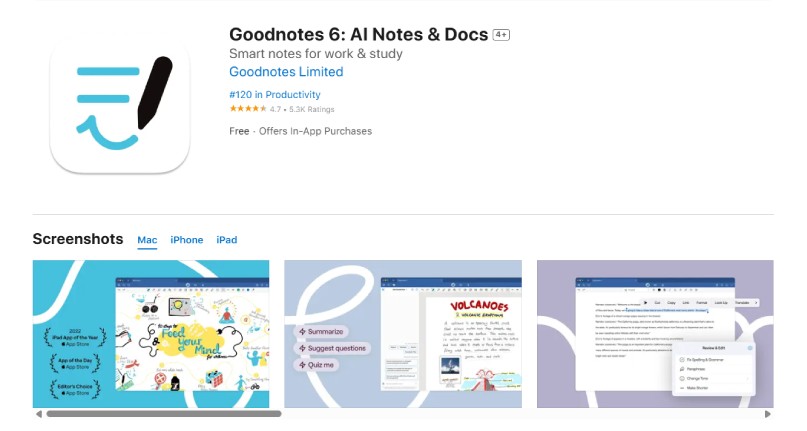
GoodNotes transforms your device into a digital paper notebook, offering unlimited creativity in how you design and structure your planning system.
Key Features:
- Planner templates
- Handwriting support
- Cloud sync
- Annotation and free-form layouts
Pros:
- Excellent for visual learners
- Intuitive interface
Cons:
- iOS only
- Lacks automated task tracking
Best For: Artists and creative professionals
Price: Free with in-app purchases
Platform: iPadOS
Rating: 4.7/5
5. Noteful – Modern Note + Planner Combo
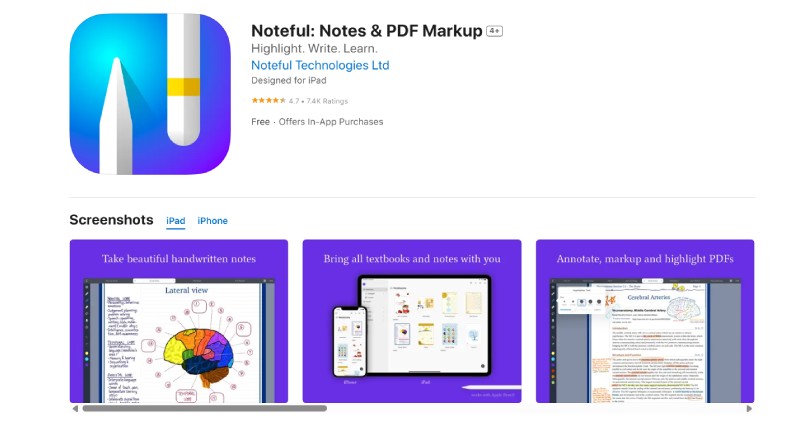
Noteful represents the new generation of planning apps that blend minimalist design with powerful functionality, creating an intuitive planning experience for modern users.
Key Features:
- Minimalist, focus-friendly interface
- Smart template suggestions
- Quick capture and organization
Pros:
- Beautiful, modern design
- Fast and responsive performance
- Intuitive user experience
Cons:
- Limited advanced features
- Basic task management
Best For: Students, casual planners
Price: Free with in-app purchases
Platform: iPadOS
Rating: 4.3/5
6. Clockify – Best for Time Tracking + Scheduling
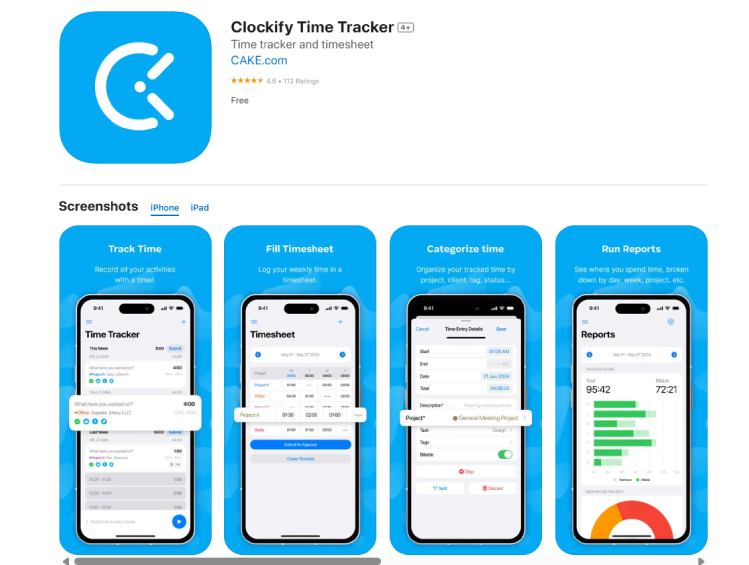
Clockify bridges the gap between planning and execution by combining schedule planning with detailed time tracking, making it invaluable for professionals who need to monitor their time investment.
Key Features:
- Time tracking for tasks/projects
- Team collaboration
- Detailed analytics and reports
- Cross-device sync
Pros:
- Robust free tier
- Detailed reporting
- Supports team management
Cons:
- Minimal visual planning
- Not ideal for casual personal routines
Best For: Freelancers, teams, project managers
Pricing: Free, Premium
Platform: iOS, Android, Web, Mac, Windows
Rating: 4.4/5
7. Pencil Planner & Calendar Pro – Best for iPad Users
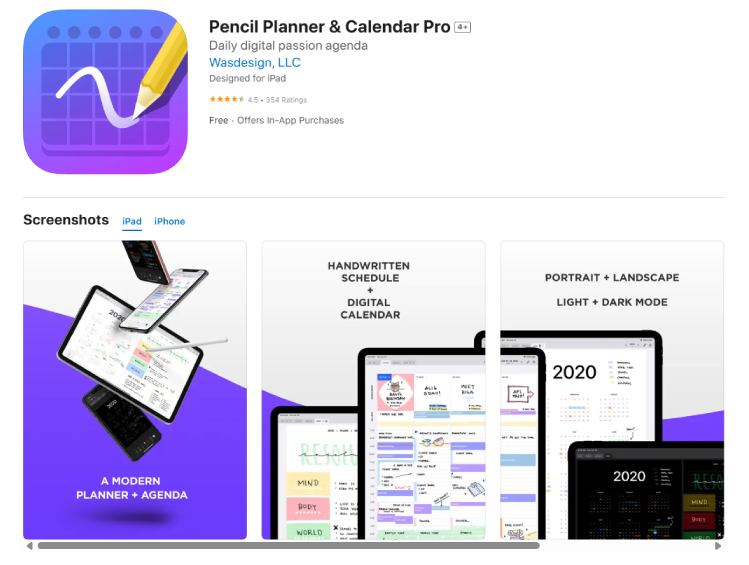
Specifically designed for iPad users, Pencil Planner & Calendar Pro maximizes the potential of Apple’s ecosystem to deliver a premium digital planning experience.
Key Features:
- Daily, weekly, and monthly views
- Handwriting support
- Cloud sync
Pros:
- Natural handwriting feel
- Intuitive design
Cons:
- iOS only
- Limited collaboration features
Best For: iPad users, handwriting enthusiasts
Price: Paid
Platform: iPadOS
Rating: 4.2/5
8. Planner Pro – Simple Daily, Weekly & Monthly Planner
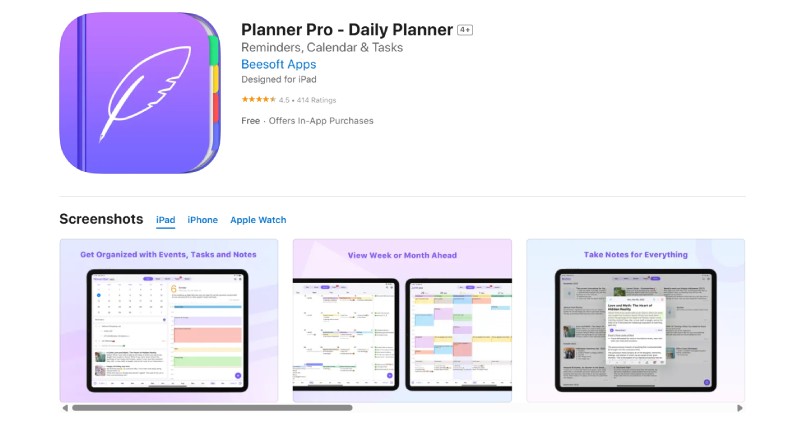
Planner Pro is a straightforward, easy-to-use digital planner for managing daily, weekly, and monthly tasks. Perfect for beginners and casual users.
Key Features:
- Task lists and reminders
- Calendar view
- Notes and events
Pros:
- Simple and intuitive
- Offline mode available
Cons:
- Limited advanced features
- Basic interface
Best For: Beginners, casual planners
Pricing: Free, Premium
Platform: iOS, Android
Rating: 4.2/5
9. Trello – Visual Board-Based Task Planning
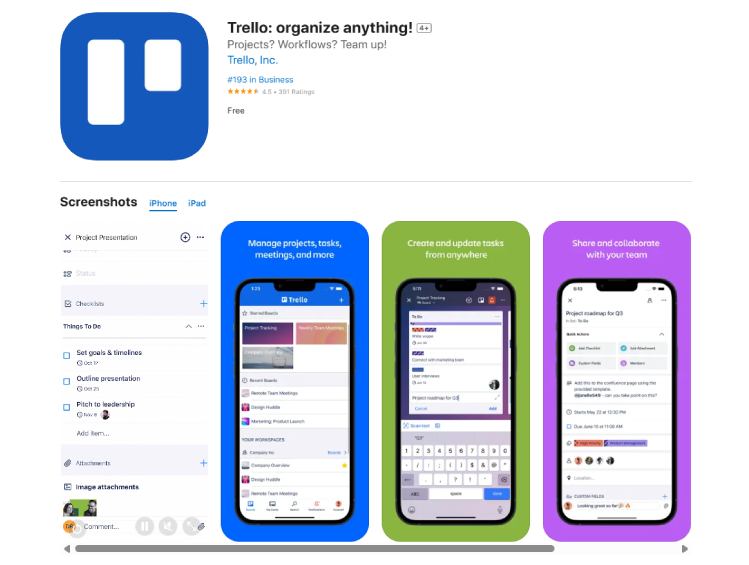
Trello uses Kanban boards and cards for visual task management. Ideal for team collaboration and flexible project planning.
Key Features:
- Kanban boards & checklists
- Team collaboration
- Integrations with productivity tools
- Card-based task tracking
Pros:
- Flexible for projects
- Excellent collaboration
- Visual organization
Cons:
- Not ideal for traditional daily routines
- It can feel overwhelming for solo users
Best For: Teams, project managers
Pricing: Free
Platform: iOS, Android, Web, Mac, Windows
Rating: 4.6/5
10. Zinnia – Creative Digital Planner & Journaling App
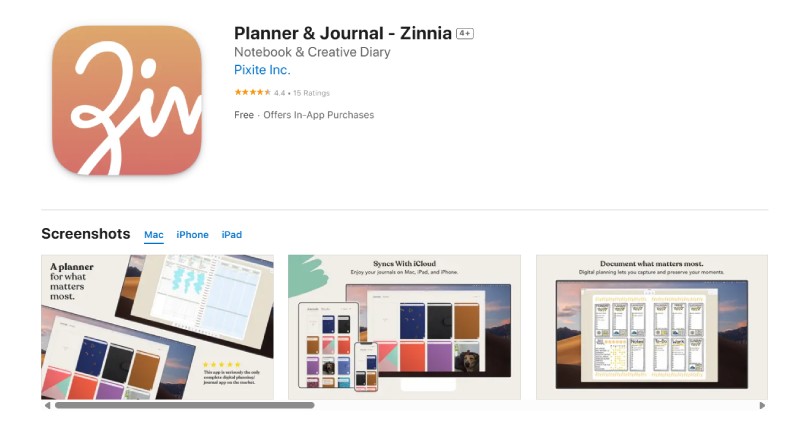
Zinnia is a digital planner and journaling app designed for creative users who want to combine daily planning with artistic expression. Ideal for people who like colorful, customizable, and visually appealing planners.
Key Features:
- Daily, weekly, and monthly planner templates
- Stickers, colors, and decorative elements
- Habit tracking and goal-setting
- Notes, sketches, and journaling tools
- Cloud sync across devices
Pros:
- Highly creative and visually engaging
- Customizable templates
- Combines planning and journaling
Cons:
- Focused on aesthetics, less on advanced task management
- Some features require a premium subscription
Best For: Creative users, students, lifestyle planners
Pricing: Free; Premium $4.99/month
Platform: iOS, Android, Web
Rating: 4.5/5
Quick Comparison: Free vs Paid Time Organiser Planner Apps
| App Name | Best For | Key Features | Free/Paid | Ideal User |
|---|---|---|---|---|
| PlanWiz | Customizable daily routine templates | Editable templates, download & share, reminders | Free & Paid | Students, professionals, families |
| Evernote | Note-taking + task planning | Notes + tasks, web clipper, templates, reminders | Free & PaidFree w/ Subscription | Students, researchers, professionals |
| Notability | Handwritten digital notes | Handwriting, audio notes, multi-note view, annotations | Paid | Students, teachers, professionals |
| Goodnotes | Creative planners | Handwriting, PDF import, notebooks, templates | Free & Paid | Creatives, students, bullet journalers |
| Noteful | Notes + planner features | Notes + routines, reminders, templates, sync | Free & Paid | Students, casual planners |
| Clockify | Time tracking & scheduling | Time tracking, reporting, reminders, team dashboards | Paid | Professionals, teams, freelancers |
| Pencil Planner & Calendar Pro | iPad handwriting planning | Time tracking, reporting, reminders, and team dashboards | Free & Paid | iPad users, creatives |
| Planner Pro | Simple daily/weekly/monthly planning | Tasks, notes, calendar, reminders | Free & Paid | Beginners, students, professionals |
| Trello | Visual project & task planning | Kanban boards, checklists, a calendar, and collaboration | Free & Paid | Teams, project managers |
| Zinnia | Visual project planning | Kanban boards, checklists, and calendar power-up | Free & Paid | Project managers |
How to Use a Time Planner Apps Effectively?
Simply downloading a day timer app is not enough; the real impact comes from using it the right way. Follow these steps to maximize productivity and get the best out of your planning tool.
1. Start Small (Don’t Over-Schedule)
Many people make the mistake of trying to fill every single hour of their day with tasks. This creates unnecessary pressure and often leads to burnout. Instead:
- Focus on Key Priorities: Begin by planning just your top 3–5 tasks for the day.
- Leave Buffer Time: Allocate gaps for unexpected tasks or quick breaks.
- Gradually Expand: Once you’re comfortable, increase the level of detail in your schedule.
- Example:
- A student can start by scheduling:
- 2 hours of focused study
- 1 hour for assignments
- 30 minutes for review
- Leave the rest of the day flexible.
2. Combine with Smart Reminders
A great plan is useless if you forget to follow it. Most planner apps have built-in reminder and notification features; use them wisely.
- Set Alerts for Important Events: Schedule reminders for meetings, deadlines, or recurring tasks.
- Use Gentle Notifications: For example, a “10-minute before” alert is enough to prepare for a call.
- Avoid Over-Notifying: Too many alerts can create “notification fatigue.”
- Example:
- A professional can set:
- 5-minute prior reminder for client meetings
- Daily morning notification for reviewing the day’s schedule
3. Use Pre-Built Templates to Save Time
Why create schedules from scratch every day when templates can do the heavy lifting?
- Daily Routine Templates: Perfect for morning/evening rituals.
- Workday Templates: Time-blocking for meetings, deep work, and breaks.
- Meeting Agenda Templates: Ensure every meeting has a clear structure and saves time.
- Example:
- Using PlanWiz, you can:
- Pick a “Workday Time Block Planner” template
- Edit blocks (e.g., 9-11 AM for deep work, 11-12 meeting time)
- Save and reuse daily
4. Track & Adjust Regularly
Your first plan won’t be perfect, and that’s okay. The real power comes from reviewing and adjusting regularly.
- Do a Weekly Review: See what tasks were completed and what was missed.
- Move Unfinished Tasks Forward: Don’t abandon them; reschedule them.
- Analyze Patterns: Identify when you’re most productive and schedule tough tasks accordingly.
Example:
If you notice that most deep work is done in the morning, block mornings for focused work and shift meetings to afternoons.
5. Stay Consistent
Consistency turns a planning tool into a productivity habit.
- Check Daily: Start and end your day by reviewing your planner.
- Sync Across Devices: So you’re always connected (phone, tablet, laptop).
- Make It a Ritual: Spend just 5 minutes planning every day.
Example:
Entrepreneurs can review their PlanWiz template every morning at 8 AM and update it at the end of the day.
How to Choose the Right Time Planner Apps for Your Needs?
Selecting the perfect time schedule planner app requires understanding your specific requirements and matching them with the right features. Here’s a comprehensive evaluation framework:
Essential Factors to Consider:
1. Ease of Use
- Can you start planning within minutes of download?
- Is the interface intuitive without extensive tutorials?
- Do the navigation and features feel natural in your workflow?
- Consider apps like PlanWiz that prioritize user-friendly templates over complex feature sets
2. Customization Level
- Can you modify layouts, colors, and sections to match your preferences?
- Are templates available for your specific needs (student, professional, entrepreneur)?
- Does the app allow you to create personal planning formats?
- Look for flexibility in how information is displayed and organized
3. Cross-Platform Synchronization
- Does the app work seamlessly across all your devices?
- Are there native apps for your preferred platforms?
- How reliable is the sync functionality?
- Consider cloud-based solutions for maximum accessibility
4. Integration Capabilities
- Can the app connect with your existing tools (Google Calendar, email)?
- Does it support importing from other planning systems?
- Are there automation options to reduce manual entry?
- Evaluate how well it fits into your current productivity ecosystem
5. Pricing Structure
- What features are available in the free tier?
- Is the premium pricing justified by additional functionality?
- Are there one-time purchase options versus ongoing subscriptions?
- Consider long-term costs and value proposition
Quick Decision-Making Checklist:
Students:
Look for apps with template variety for study schedules and assignment tracking, plus integration with daily planner templates.
Affordability matters too, so choose free or budget-friendly options that work well on mobile for on-campus use. (Want more student-specific tools? Check out our guide on the top daily planner apps for students.)
Working Professionals:
Prioritize meeting and project management features, team collaboration, and integration with work tools like Outlook or Slack. Professional-looking planners can make a strong impression in client-facing roles.
Entrepreneurs & Freelancers:
Choose apps offering time tracking, billing integration, and flexible scheduling for irregular hours. Bonus points if they support goal tracking and business planning features. (Need deeper insights? Here’s how freelancers solve time management with monthly planner apps.)
Busy Parents:
Opt for family calendar sharing, quick entry methods, and robust reminders for school events or family activities. Apps that integrate with school calendars make life easier. (Explore more tips in our post on notes planner for busy parents.)
Frequently Asked Questions
A calendar app mainly tracks dates and events in a simple format. In contrast, advanced tools provide features like customizable templates, reminders, and detailed daily or monthly scheduling, making them perfect for structured organization.
Yes, most planner apps allow easy sharing. With PlanWiz, you can download plans as PDFs, share via email or messaging apps, or collaborate in real time with your team, classmates, or family members.
Some features, like real-time sync, require internet, but many apps support offline access. You can use downloaded templates, make edits, and sync updates automatically when you reconnect online.
Templates are highly flexible. You can edit tasks, change layouts, add colors, and adjust schedules to match your personal or professional needs without restrictions.
Yes, planner apps are designed for versatility. You can manage work meetings, school projects, personal habits, and even family schedules in one organized system.
People Also Ask
What is the best 24-hour time planner?
Apps like PlanWiz and Structured help you plan every hour of your day. They offer customizable templates and reminders to keep routines on track.
Which meeting time planner is best for teams?
Planwiz and Clockify are great for team planning. They allow task assignment, shared boards, and real-time notifications for smooth collaboration.
How does a time schedule planner improve productivity?
By breaking work into smaller steps, these apps reduce overwhelm. Prioritization and reminders keep you organized, focused, and consistent.
What’s the best conference time planner app?
Planwiz works well for managing events and sessions. It provides scheduling tools, reminders, and detailed reporting features.
Which is the best time organiser app for daily routines?
PlanWiz is ideal for managing everyday tasks. It offers editable templates, reminders, and easy sharing options.
Is time blocking better than to-do lists for planning?
Yes—time blocking assigns dedicated slots for tasks. This reduces distractions and boosts focus compared to standard to-do lists.
Conclusion
Transform your productivity with the right schedule planner app. From customizable templates to seamless scheduling, these tools help you stay organized and focused. Whether for work, study, or family life, find your perfect planning solution and start maximizing your daily potential today.

